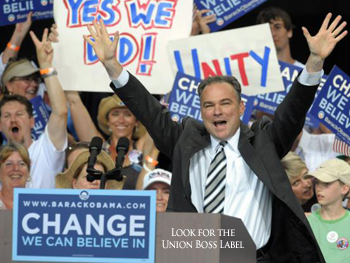Greer: Economic Boom in America’s Newest Right to Work State
From Stan Greer at the National Institute for Labor Relations Research: Indiana Performing Well in Job Growth Ball State University economist Michael Hicks: "Indiana just zoomed past the rest of the country in terms of job growth" during the first full month after its Right to Work law took effect. In the U.S.as a whole, the anemic private-sector employment growth of early 2012 got even more feeble last month, as the nation’s business payrolls barely increased by an estimated 0.1%, seasonally-adjusted. (See link) However, job seekers are faring far better in some regions of the country than in others. A notable example is America’s 23rd Right to Work state, Indiana. As the U.S. Bureau of Labor Statistics first reported (see link) and as WIBC news radio in Indianapolis discussed early today, one out of every eight private-sector jobs created in the nation in April was “created in Indiana.” This is remarkable, because the Hoosier State is home to just 2.2% of America’s private-sector employees. Michael Hicks, an economist at Ball State University in Muncie and a frequently quoted analyst of the Indiana economy, is impressed: “We’ve seen good job growth over the last several months in Indiana but it looks like the nation as a whole was slowing down a bit. But last month Indiana just zoomed past the rest of the country in terms of job growth.” Previously, Dr. Hicks had been publicly skeptical about whether Indiana’s new Right to Work statute, which was adopted in early February and took effect in mid-March, would have much impact on job creation. He still insists its “too early to tell,” but now admits “it’s pretty difficult to say” the state’s sudden burst of private-sector payroll job growth in April, even as private-sector job creation nationwide practically ground to a halt, is not related to Indiana’s new ban on compulsory union dues and fees.






